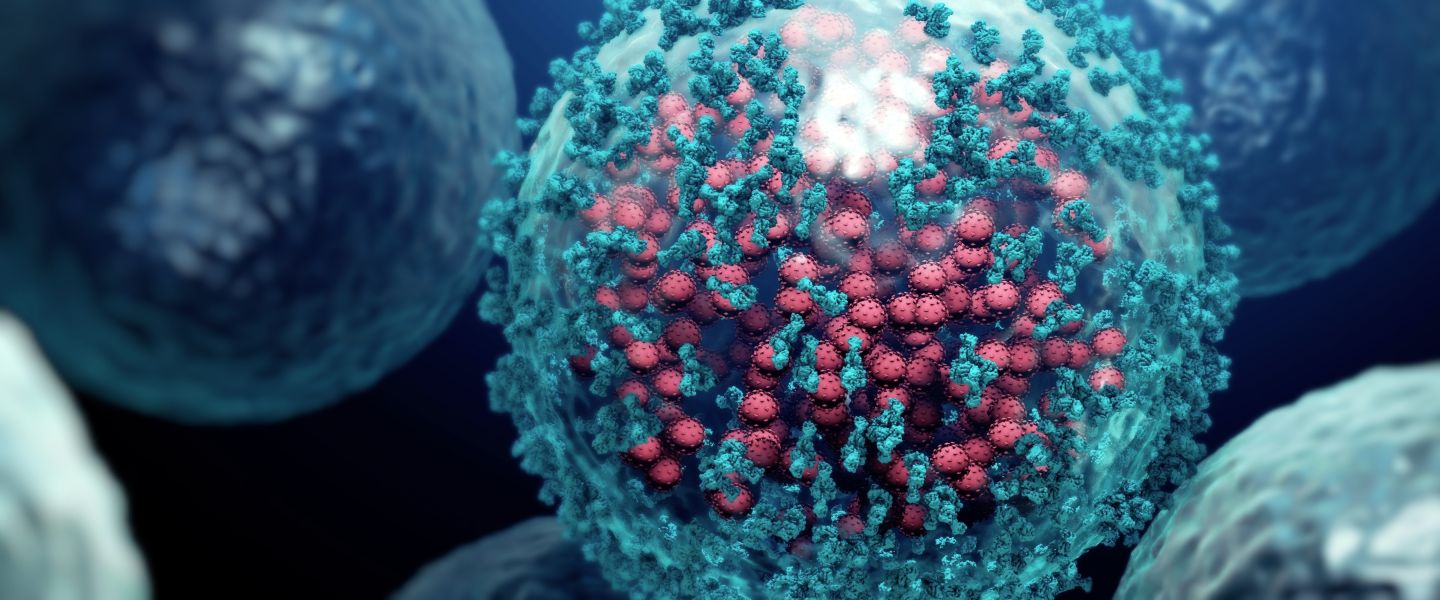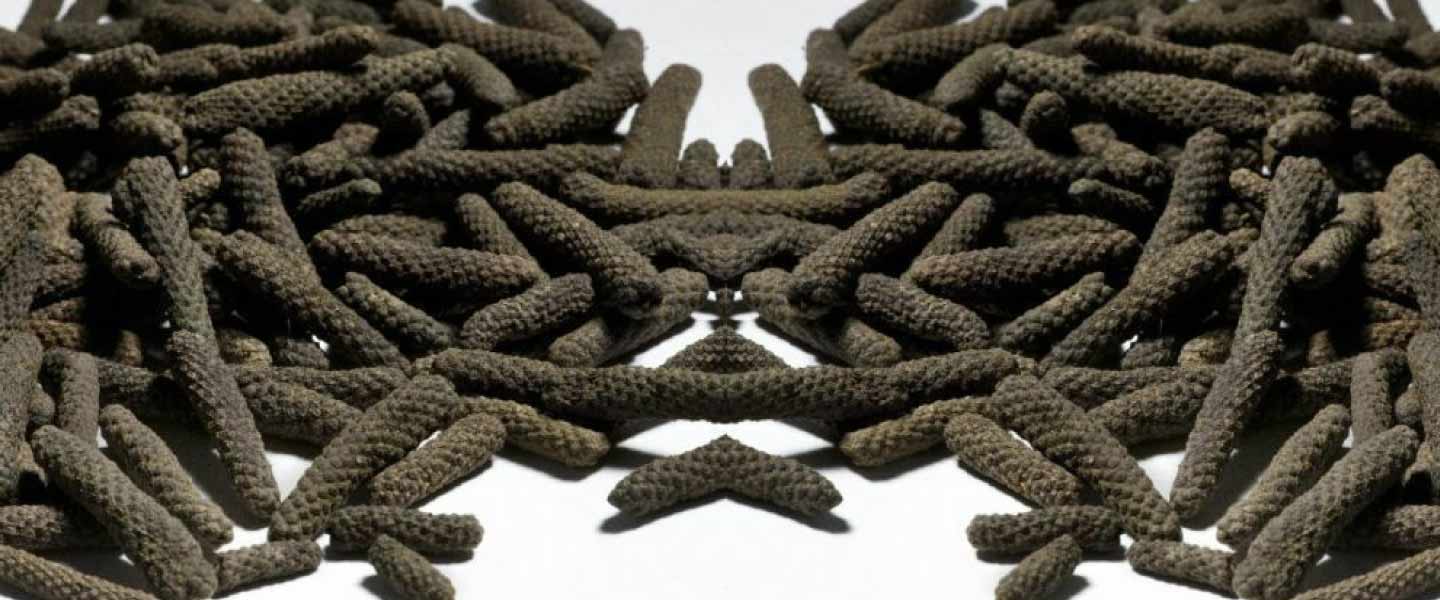SHARING / REPOSTING GUIDELINES: We're very happy to have posts/articles shared as direct links.
However, if you are replicating and re-posting information from this website or our posts, Abbey requests that you:
A) Only ever share articles in part (not in full). (eg. You can lift a paragraph as a way of introducing your readers to the topic) B) Be sure to always provide a direct link/URL back to the full original article here on the MyHealingCommunity.com website. Thanks in advance for your co-operation when sharing and re-posting any and all information that appears on this website.
A Potential Paradigm Shift in Cancer Therapy: Mitigating the Disease Without Killing Cancer Cells
In a tumor, even without treatment, a substantial number of cancer cells spontaneously die each day. This is due to the high rate of cell proliferation and the unstable nature of cancer cells, which often have defects in their DNA repair mechanisms and can be more prone to apoptosis (programmed cell death) or necrosis (cell death due to injury or disease). Scientists discovered that when cancer cells die, either spontaneously or from treatment, cell-free chromatin particles are released into the tumor microenvironment where they are readily internalized by surviving cancer cells and induce DNA damage, inflammation, and immune suppression. This process could explain how cancer begets more cancer.
Chromatin is a complex of DNA and protein found in cells. Its primary function is to package long DNA molecules into more compact, dense structures. This prevents the strands from becoming tangled and plays important roles in reinforcing the DNA during cell division, preventing DNA damage, and regulating gene expression. Cell-free chromatin particles are composed of DNA and histones that are packaged into thin, stringy fibers.
Scientists also found that cell-free chromatin particles are released from the billions of normal cells that die each day as we age. These particles readily enter healthy cells and can damage their DNA, activate apoptotic and inflammatory pathways, and impair mitochondrial function. This process could explain how aging begets more aging. Not surprisingly, the older we get, the more cell-free chromatin particles we make, and the more prevalent cancer becomes.
Some scientists believe that the lifelong assault on healthy cells by cell-free chromatin particles may be the underlying cause of the physiological deterioration of aging. Chromatin particles may act as global instigators of not only aging itself, but also of degenerative, age-associated disorders, including cancer, cardiovascular disease, diabetes, and Alzheimer’s disease. Fortunately, scientists may have found a way to safely neutralize cell-free chromatin particles.
Scientists discovered that minute oral doses of resveratrol and copper generate oxygen radicals in the stomach. These radicals are readily absorbed into the circulation and permeate the extracellular spaces and deactivate cell-free chromatin particles. In an animal model, this was found to downregulate several biological hallmarks of aging and neurodegeneration. In a human model using patients with advanced oral cancer, it was found that deactivating cell-free chromatin particles downregulated the hallmarks of cancer, as well as five immune checkpoint (suppressor) proteins. This data suggests that prolonged treatment with resveratrol and copper may have the potential to induce healing without having to directly kill cancer cells.
In conclusion, this exciting area of research offers potential strategies for combating cancer and perhaps even aging itself. As we deepen our understanding of the role of cell-free chromatin particles and explore ways to neutralize them, we may find ourselves on the brink of significant advancements in human health and longevity.
Comments: It is important to note that higher doses of resveratrol and copper were far less effective than lower doses. Also, the combination of resveratrol and copper was found to target 21 out of 23 biomarkers representing 10 hallmarks of cancer. The two exceptions were VEGFA (angiogenesis) and GLUT1 (cellular energetics). Melatonin or thalidomide have been found to inhibit VEGFA, and apigenin and genistein have been found to inhibit GLUT1. Adding these compounds might allow one to target all 23 biomarkers and improve treatment outcomes even further.
Dr. Daniel Thomas, DO, MS
Metabolic & Nutritional Medicine
Integrative Cancer Therapeutics
Mount Dora, Florida
Disclaimer:
This information is for educational purposes only and not intended or implied to be personal medical advice. That is for your personal physician to provide after he or she has carefully studied the references above.
More from the Healing Cancer Study Support Group thread.
Our private Facebook Healing Cancer Study Support Group now has a thread dedicated to sharing and discussing the research on cell-free chromatin particles (cfChps) and their role in cancer. Group members logged into Facebook can join the discussion here:
cfChps and their role in Conventional Cancer Treatment Side Effects
"chemotherapy toxicity was reduced via the generation of oxygen radicals which deactivate cfChPs released from chemotherapy-induced dying cells."
Prof. Mittra explains, "Chemo-toxicity is not primarily caused by chemotherapeutic drugs, but rather by cfChPs that are released from the first cells that die after chemotherapy. The released cfChPs set in motion a cascading effect, increasingly damaging the DNA of healthy host cells and triggering inflammatory processes in a vicious cycle that perpetuates and prolongs the toxicity of chemotherapy."
https://medicalxpress.com/news/2023-01-exploiting-synergy-nutraceuticals-cancer-treatment.html
New thinking on how cancer metastasizes
These researchers concluded that "Metastases arise as new cancers from cells of target organs transformed by cfCh particles released from dying CTCs. This conclusion challenges the dogma that metastases arise from cells that are derived from the primary tumour."
"cfCh particles were isolated from Adriamycin-treated dying MDA-MB-231 cells by modification of a method described by us (Mittra et al J Biosciences 2015). When the isolated cfCh particles were injected IV into mice, they developed lung metastasis after ˜ seven months, thereby directly implicating cfCh in the development of metastases. The cfCh-induced human-specific were again found to contain mouse-human-specific tumour DNA and proteins." They " hypothesized that circulating tumour cells (CTCs) also die upon reaching target organs and release oncogenic cell-free chromatin (cfCh) particles which integrate into their cellular genomes and transform them to form new tumors which masquerade as metastases ... ".
https://aacrjournals.org/cancerres/article/81/13_Supplement/2875/668726/Abstract-2875-Metastases-arise-as-new-cancers-from
Hallmarks of aging significant to cancer patients impacted by cfChPs
R-Cu treatment reduced several biological hallmarks of ageing in brain cells, including telomere attrition, amyloid deposition, DNA damage, apoptosis, inflammation, senescence, aneuploidy and mitochondrial dysfunction. R-Cu treatment also led to a significant reduction in blood levels of glucose, cholesterol and C-reactive protein. These findings suggest that cfChPs may act as global instigators of ageing and neurodegeneration and that therapeutic use of R-Cu may help to make healthy ageing an attainable goal.
https://pubmed.ncbi.nlm.nih.gov/36241685/
cfChps and Immune Checkpoints full paper.
.."cell-free chromatin particles (cfChPs) that circulate in the blood of cancer patients, or those released from dying cancer cells, simultaneously activate five immune checkpoints as a stress response by human lymphocytes. Activation of checkpoints was abrogated by cfChPs deactivating agents suggesting a novel approach to cancer treatment."
https://www.biorxiv.org/content/10.1101/2023.06.09.544311v1.full
And the healing of the wound that will not heal clinical trial this blog post was originally inspired by. Advanced oral cancer patients suggested that cfChPs released from dying cancer cells enter surrounding surviving cancer cells, trigger DNA damage and inflammation, and further contribute to their aggressive behaviour—effects that could be mitigated by R-Cu administration. The ability of R-Cu to deactivate cfChPs raises the prospect of a novel and non-toxic form of cancer treatment which sans the killing of cancer cells and instead induces healing by down-regulating cancer hallmarks and immune checkpoints.
https://www.frontiersin.org/journals/oncology/articles/10.3389/fonc.2022.1000957/full
Healing Cancer Study Support Group members logged into Facebook can read more, share and join the discussion
References
Li S, Li J, Dai W, Zhang Q, Feng J, Wu L, Liu T, Yu Q, Xu S, Wang W, Lu X, Chen K, Xia Y, Lu J, Zhou Y, Fan X, Mo W, Xu L, Guo C. Genistein suppresses aerobic glycolysis and induces hepatocellular carcinoma cell death. Br J Cancer. 2017 Nov 7;117(10):1518-1528.
Melstrom LG, Salabat MR, Ding XZ, Milam BM, Strouch M, Pelling JC, Bentrem DJ. Apigenin inhibits the GLUT-1 glucose transporter and the phosphoinositide 3-kinase/Akt pathway in human pancreatic cancer cells. Pancreas. 2008 Nov;37(4):426-31.
Pal K, Raghuram GV, Dsouza J, Shinde S, Jadhav V, Shaikh A, Rane B, Tandel H, Kondhalkar D, Chaudhary S, Mittra I. A pro-oxidant combination of resveratrol and copper down-regulates multiple biological hallmarks of ageing and neurodegeneration in mice. Sci Rep. 2022 Oct 14;12(1):17209.
Pilankar A, Singhavi H, Raghuram GV, Siddiqui S, Khare NK, Jadhav V, Tandel H, Pal K, Bhattacharjee A, Chaturvedi P, Mittra I. A pro-oxidant combination of resveratrol and copper down-regulates hallmarks of cancer and immune checkpoints in patients with advanced oral cancer: Results of an exploratory study (RESCU 004). Front Oncol. 2022 Sep 16;12:1000957.
Vimalraj S, Saravanan S, Raghunandhakumar S, Anuradha D. Melatonin regulates tumor angiogenesis via miR-424-5p/VEGFA signaling pathway in osteosarcoma. Life Sci. 2020 Sep 1;256:118011.
Zhang X, Luo H. Effects of thalidomide on growth and VEGF-A expression in SW480 colon cancer cells. Oncol Lett. 2018 Mar;15(3):3313-3320.
DISCLAIMER: Any and all information in this post was gathered from published research in cell lines or animals, or from typical clinical use. It may not be complete, may not have not been verified in humans, and is NOT meant or given as medical advice, but only as a guide to further exploration.
Continue Reading...
BLOG







